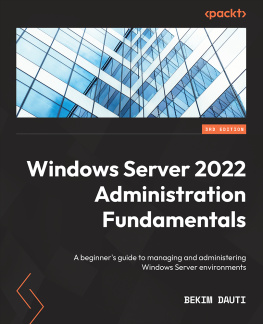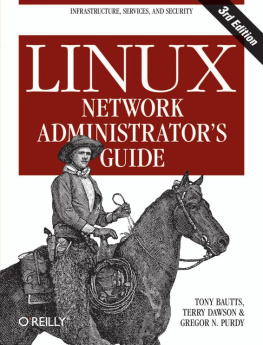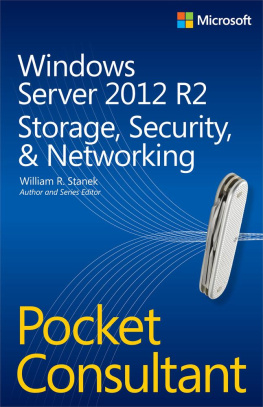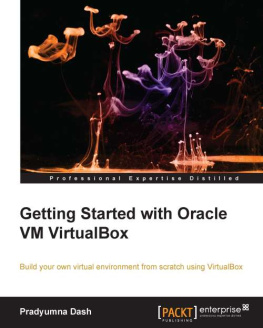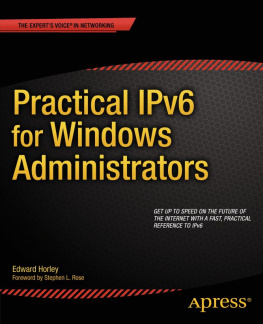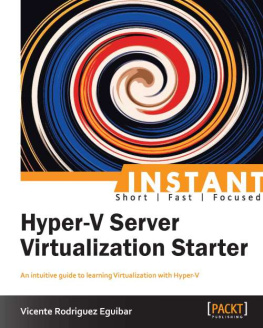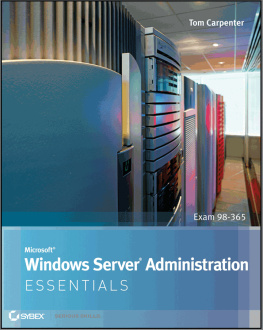FOREWORD
Virtualization is cool. I've always had a soft spot for virtualization, since as a lifelong sysadmin I get pretty tired of the endless fine-tuning that goes into building a successful network "host." Especially when that fine-tuning evolves into upgrades involving screwdrivers, recabling, and dust.
While Xen wasn't the first serious virtualization platform, it was the first serious open source virtualization platform, so it was the first that I was willing to invest my time in learning about, and the first I'd consider basing any production-level systems on. Open source isn't just a preference for meI dislike lock-in, so I hardly ever buy or deploy or depend on something that I couldn't replace with a different product offered by a competing vendor sometime in the future.
Like any serious open source system, Xen has the power of an ecosystem in which anybody who wants to vend can pick a spot and start hacking, but Xen also has the backing of a strong company whose employees contribute to the open source version of their product. This kind of vertical openness makes it possible for anyone (a hobbyist or a Fortune 500 company) to jump into Xen, buy only what they want or need (or just get it all for free), and have it remain compatible with the rest of the ecosystem. Thank you, XenSource and Citrix, for all this.
Confession time: I don't use Xen for any of my personal projects. I just don't have enough systems in any one location, nor can I plan far enough in advanceI'm too small to be able to afford virtualization's efficiencies. Whenever I do need separation of privilege on the same physical servers, I've been able to get away with FreeBSD jails or User Mode Linux. I also do a fair amount of real-time work, in which I need my code to be close to the hardware for designand sometimes performancereasons.
For professional work, my company uses a mixture of proprietary (VMware) and open source (Xen) virtualization and the results are outstanding. Whether it's to save money on hardware, save money on sysadmin time, or enable new kinds of computing, virtualization is a winner and it's here to stay. I've seen Amazon and Google build gigantic clouds of virtualized servers for their own use and for rental to customers, and this method has driven down IT costs for both new and established companies of all sizes. It probably saves power and lowers the industry's carbon footprint as well.
I'm struggling to find a way to communicate how amazingly cool this is. We try to write programs that fit into a single process, but they end up taking a whole Unix system because of all the processes and databases and shell scripts and file systems and UIDs they slop over. So we end up dedicating physical servers to applications that have no performance- or security-related reason to be on dedicated servers; but each one takes up some rack space and some sysadmin time, and each one generates some minimum amount of heat, and so on. Then along comes virtualization, and we're back to adding physical servers only when we've got a good reason to do so, which usually means for capacity reasons.
Note that while I admire cloud computing, I also fear it. Amazon and Google have their own virtualization APIs, and anyone who builds "version 1" of a system to live inside one of these commercial clouds is probably signing up to put "version 2" into the same cloud. Competition requires differentiation and most vendors want to be different in capability, not just in cost efficiency. In other words, lock-in is great for sellers but not so great for buyers. Thus my attraction to enterprise virtualizationand specifically to open source enterprise virtualization, with the resulting vertically open ecosystem. I'll build my own clouds whenever I need themand with Xen, so can you.
A word about Luke. He was a kid who lived down the street from my sister, and she asked me to give him a chance. So I hired him at an anti-spam company called MAPS (yes, that's spam spelled backwards, pretty neat, huh?), and he turned out to be a dumbass kid, like we all were at that age. In the time since then, he has distinguished himself as a virtualizer and now, with this book, as a writer. Xen is cool stuff, but it's also deep and wide and densethat is to say, it's a hard topic. Luke and Chris have unscrambled Xen into the linear form of a printed book in about the best way I can imagine anybody doing it, and I learned quite a bit about Xen from reading my advance copy. The book is also fun to read without the fun being distracting or dilutive.
Go forth and virtualize!
Paul Vixie
La Honda, California
September 2009
ACKNOWLEDGMENTS
First, we would like to thank No Starch Press. Without them, this book would never have been imagined, much less published. In particular, we'd like to thank our editor, Tyler Ortman, who had the thankless tasks of making us write and cutting our dumb jokes. We'd also like to especially thank Rami Rosen, who provided us with an excellent technical review; Jeanne Hansen, our long-suffering copyeditor; and Bill Pollock, who paid for it all (and who made sure we actually finished it). And to everyone else on No Starch's team: we couldn't have done it without you. It was a humbling experience to see so many people scrutinizing our work, and the book is much, much better for it.
We also want to thank all the people who worked on prgmr.com during its checkered history. Without help from many skilled people willing to work at below market rates, the company would have folded long ago. So, heartfelt thanks go to Thuy Vu, Neal Krummell, Will Crawford, and Nick Schmalenberger, and to everyone else who has worked here for shorter periods of time. Neal deserves a special mention. Aside from introducing Chris and Luke, Neal provided encouragement and help during the critical early phases of the project.


